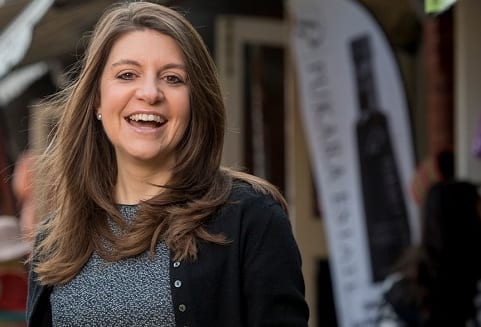Ahead of International Women’s Day this week, Leigh O’Neill (pictured above), executive general manager of Business Direct and Small Business at NAB, told our friends at SmartCompany that it is clear there are are still “gender based challenges for women running businesses” in Australia.
“I hear frequently stories of women going in [to meetings] and people saying, ‘you know, can I speak to your husband?’” she said.
“We have a very successful female business owner in South Australia who I was talking to recently, and she still goes for meetings with customers and they say, ‘well, is the director of the business here?’ and she’s like, ‘no, I am the director of the business’.”
This observation was echoed by Small Business and Family Enterprise Ombudsman Kate Carnell, who said that while “it’s not nearly as bad as it used to be”, these kinds of assumptions are still present in sectors like IT and finance.
“When I got my first loan, three banks knocked me back on the basis that I was 25, and a woman. There were a couple of questions in there like ‘when are you having babies?’”
While perceptions of female business owners have shifted rapidly in the time since she ran her pharmacy business, Carnell says sectors that haven’t “moved as much”, like finance, still present barriers for women wanting to start businesses in that space.
The daughter of small business owners herself, O’Neill has worked for NAB for close to a decade and said she’s passionate about ensuring all business owners feel supported for long-term growth.
However, while O’Neill highlights that every case is different, she said some sectors of the community continue to assume successful female founders have someone else working with them behind the scenes.
Despite this, she believes great Australian women are starting fantastic businesses every day, and observes female founders are focused on building operations with a strong sense of purpose.
“I think the other thing with female business owners is that there is this tremendous sense of running businesses with purpose. I’m not saying that men don’t — men absolutely do — but really, particularly with female founders, they say ‘what’s the altruistic return that I can get from running this?’ I notice this a lot more in our female clients.”

Carnell is optimistic about attitudes towards female entrepreneurship continuing to improve, and to her mind, moving the dial on female representation in sectors like finance and IT is also a matter of female founders helping each other.
“I suppose it still comes back to the fact that women who have succeeded do have an obligation to mentor younger women, coming into that sector,” she said.
Beyond the challenges facing some female business owners, O’Neill observed that overall, basic financial literacy and planning is vital for SME founders. Successful business operators are the ones that will put their hands up and ask if they need to get equipped with new knowledge, she said.
“If you’re not clear, take time to go and learn.”
This might be easier said than done for time-poor business owners, but O’Neill said learning how to map out a long-term business plan is critical for future success.
“That early investment of time will pay off in the long run. And it’s that perpetual challenge in a small business, which is for men as well as women: how do you spend time on the business, before you spend time in the business.”
Australia’s largest financial institutions also have a role to play in reducing the barriers that make it harder for SMEs to obtain finance for their ventures in the first place, with O’Neill previously telling SmartCompany that it’s important for NAB to move first on issues worrying SMEs. At the time, the bank claimed it was “helping lead the charge” in simplifying the terms of its small business lending contracts after Carnell’s inquiry into the area.
This is an edited version of a story that first appeared on SmartCompany. Read the original here.


